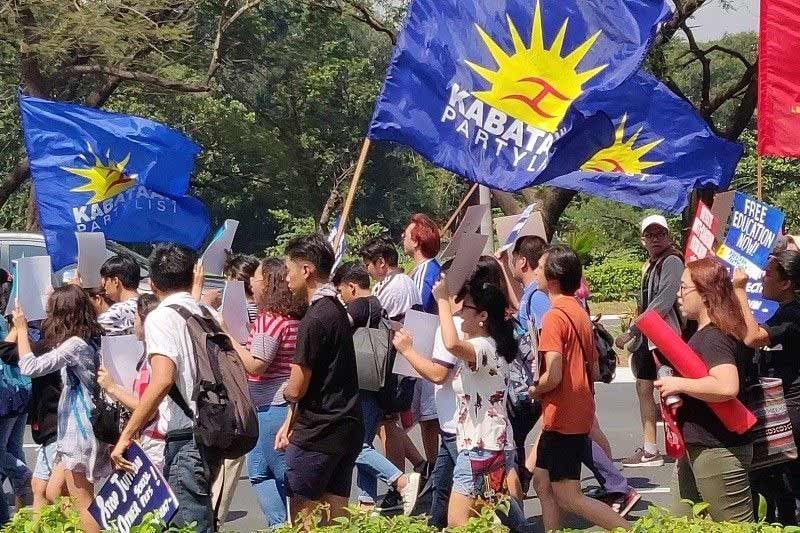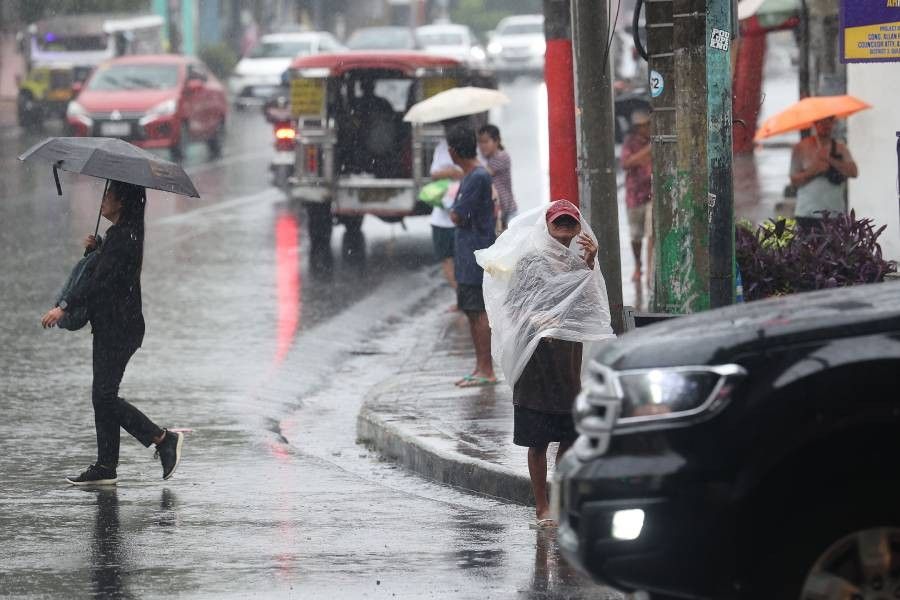
Upgrade to High-Speed Internet for only ₱1499/month!
Enjoy up to 100 Mbps fiber broadband, perfect for browsing, streaming, and gaming.
Visit Suniway.ph to learn
Bella Cariaso - The Philippine Star
May 25, 2025 | 12:00am
Students from Rafael Palma Elementary School in Manila carry water containers to stay hydrated amid the extreme heat on March 3, 2025.
STAR / Ryan Baldemor
MANILA, Philippines — Free tutorial sessions for at least three million students struggling with functional literacy will start this school year, the Department of Education (DepEd) announced yesterday.
This move is part of the Academic Recovery and Accessible Learning (ARAL) program under Republic Act 12028, signed into law by President Marcos in October 2024.
“The ARAL program is a free tutorial program, so once we assess the children if they need help in Reading and Math, they will be included in the ARAL tutorial program,” DepEd Undersecretary Gina Gonong said over dZBB.
The initiative will cover Reading and Math for Grades 1 to 10, and Science for Grades 3 to 10.
A rapid assessment by DepEd revealed that out of 24 million enrolled students, around three million have significant learning gaps.
To determine who needs support, an assessment will be held on June 16, the first day of classes.
“There are levels the children are expected to learn. If they fail to reach that expectation, it means there is a learning gap, they are behind,” Gonong said.
Tutorial sessions will be held outside regular school hours: one hour on weekdays or two hours on weekends.
For this program, Gonong revealed that DepEd plans to hire additional tutors for the program, including licensed applicants, pre-service educators and private school teachers. Current public school teachers may be tapped, but not those already teaching the tutorial participants.
Meanwhile, parents of students selected for the tutorial program will be oriented on its purpose and importance.
The ARAL program will also be extended to private school students under the government’s voucher system.
Tech gaps
As the government ramps up efforts to support students with learning gaps, a policy think tank is calling for a parallel push to close digital divides in the education sector.
Stratbase Institute president Dindo Manhit yesterday stressed that addressing these digital disparities requires more than just building classrooms; it demands the modernization of how learning happens inside them.
Citing the DepEd’s projection of a 159,000-classroom shortage by 2028, Manhit urged stakeholders to invest in digital transformation alongside physical infrastructure.
“We need structured partnerships that bring in digital innovations, learning platforms, teacher support systems and blended learning models, especially in underserved communities. Such cooperation should begin in the planning phase and continue through execution to ensure integration and impact,” Manhit added.
While welcoming the government’s DepEd Computerization Program, which aims to distribute over 64,816 laptops and smart TVs to 16 regions, Manhit cautioned that hardware alone will not drive meaningful progress.
“The real value lies in how effectively these tools are used in the classroom to improve learning outcomes,” he noted.
He also acknowledged the DepEd’s early moves to explore artificial intelligence in education as a step in the right direction, but warned of foundational issues.

 1 week ago
4
1 week ago
4



